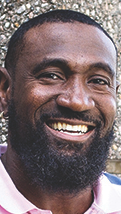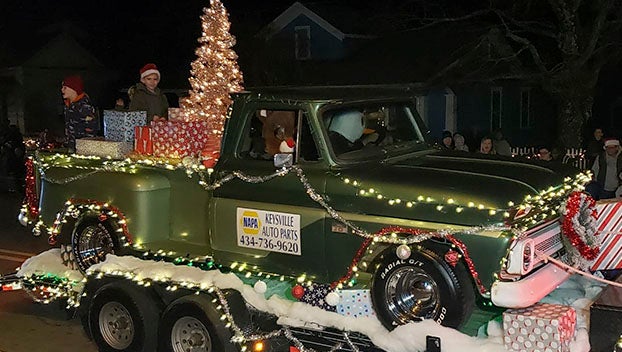County native becomes advocate for others
Published 11:27 am Friday, November 8, 2019
|
Getting your Trinity Audio player ready...
|
A Charlotte County native has become an advocate on the national level for others living with Multiple Myeloma.
Thomas Goode, a 1989 graduate of Randolph-Henry High School, was diagnosed with non-curable cancer in 2005 at the age of 34.
“This cancer is most common in African American men age 65 and above,” said Goode. “At diagnosis, the average life span for newly diagnosed patients was three to five years. Once I started learning about the statics, I chose not to be one of those statics.”
Multiple Myeloma is cancer that forms in a type of white blood cell called a plasma cell and causes cancer cells to accumulate in the bone marrow, where they crowd out healthy blood cells. African Americans are twice as likely to develop the blood cancer as white patients and are also more likely to be diagnosed at a younger age.
Goode said that he chose to become a patient advocate for this disease because he did not have an outlet or someone to speak to about what was to come or expect when he was going through his journey. “I chose to learn all that I could and be that outlet to others,” he said. “I want to make a difference in the lives of patients with multiple myeloma and help them to overcome the emotional roller coaster of having a so-far incurable cancer and to thrive after their diagnosis.”
Goode’s brother Robert further commented, “What I admire most about Tom is his determination and grit never to feel as life is somehow passing him by because of his illness.”
Goode currently works closely with the International Myeloma Foundation to provide feedback on diversity and health disparities in Myeloma and leads the Multiple Myeloma support group in Durham, North Carolia, where he lives.
“I did an interview with the International Myeloma Foundation, and it opened advocacy doors for me,” said Goode. “A group called Health Central saw that interview, and they reached out to me to participate in a documentary.”
According to Goode, that documentary led to several articles and interviews for pharmaceutical companies. “Among the goals of my advocacy is to increase the participation of African Americans in clinical trials, which is so crucial to advancing effective treatments for all patients with this cancer and to understand why multiple myeloma poses a greater risk for African Americans than white patients.” Goode added.
Following his initial diagnose, Goode said he underwent six weeks of radiation only to relapse eight months later. “ After treatment to get my numbers down, my doctor said that I was a prime candidate for a bone marrow transplant using my own cells,” explained Goode.
A few months following the transplant, Goode’s doctor told him he had relapsed once again.
Since he is the youngest of eight biological siblings, doctors wanted to see if any of his brothers or sisters were a donor candidate for a second bone marrow transplant.
“Out of seven siblings, my oldest brother Earnest was the perfect match.”
According to Goode, the transplant was successful, and things were good for a few years until he relapsed again.
“My doctor decided to enroll me in another clinical trial using different forms of chemotherapy and used my brother’s cells again for a third bone marrow transplant. Unfortunately, I relapsed a year again after this transplant,” said Goode.
In 2013 Goode went into remission yet again and has remained stable but must take daily chemotherapy to keep the disease at rest. “I must be on some form of maintenance chemotherapy for the rest of my life,” he said. “This year makes 14 years of me living with this disease. I have found a new normal. I try to live my life to the fullest, and I cherish each day as if it is my last.”






